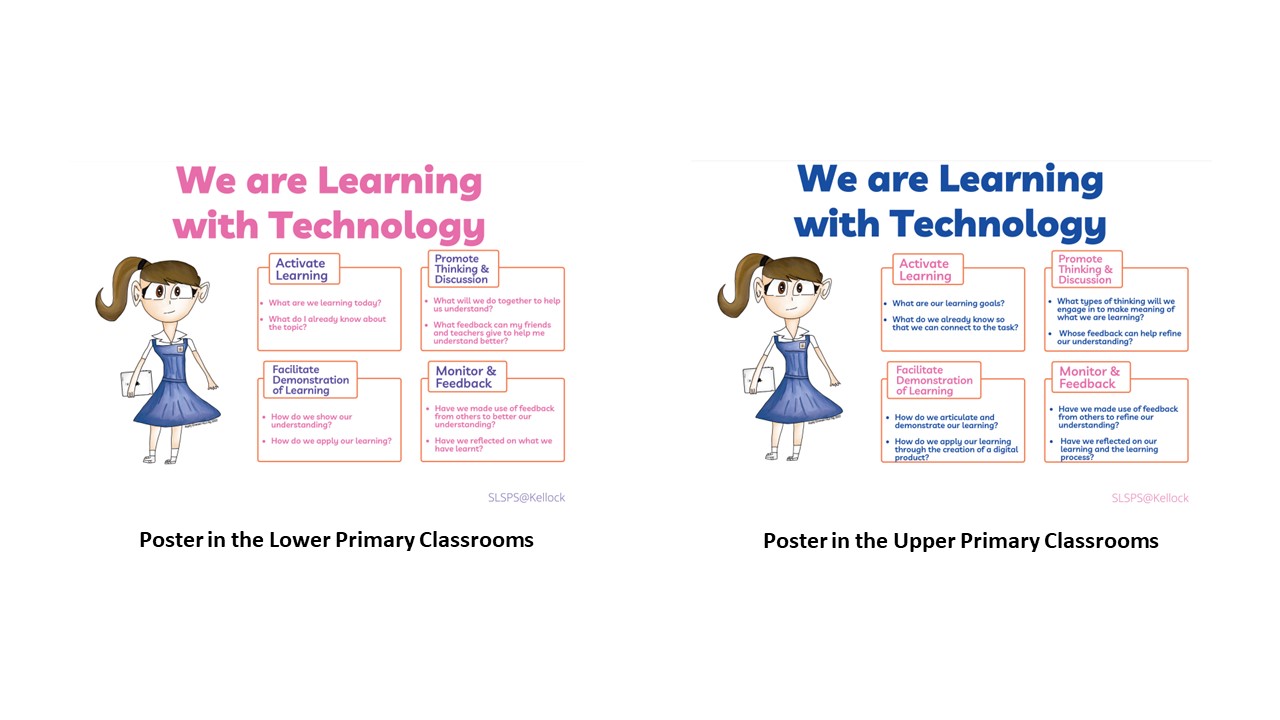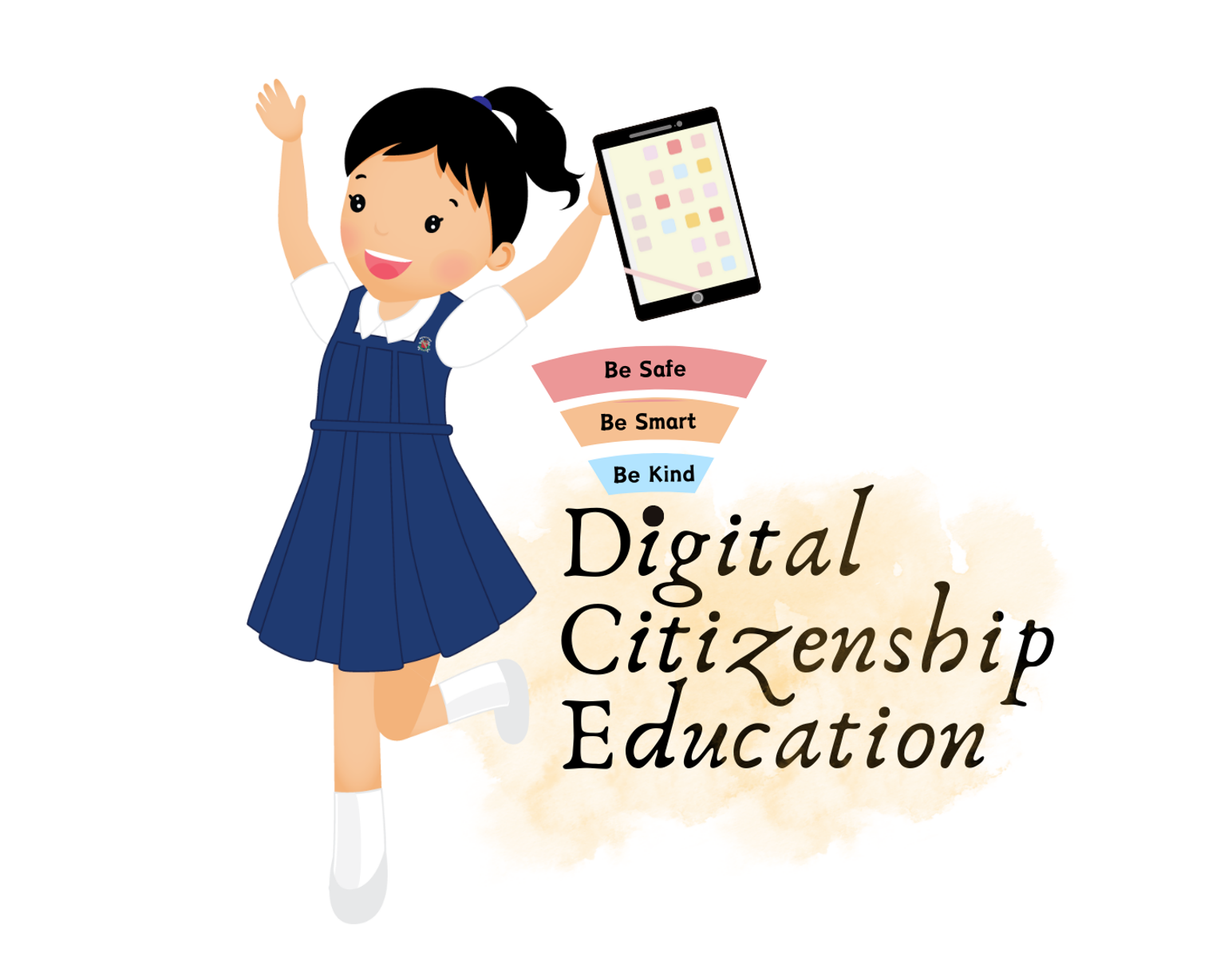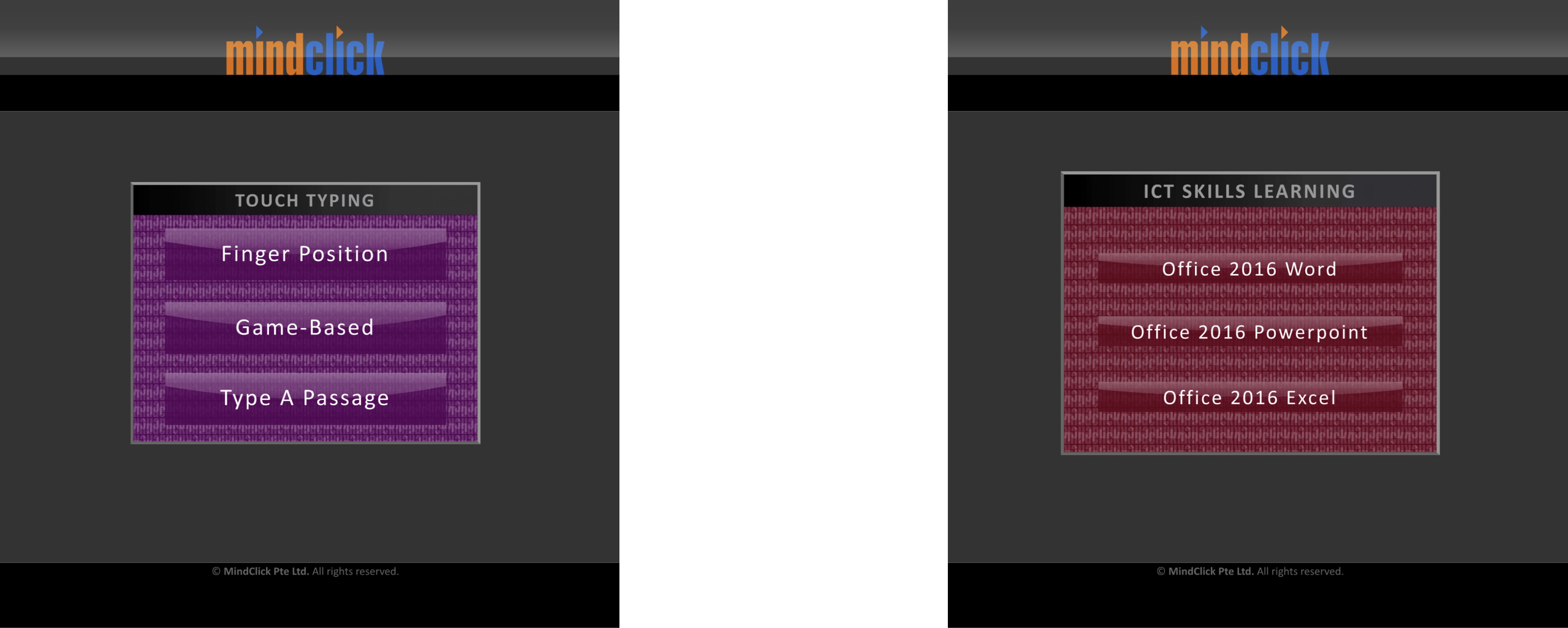Ed Tech
Vision
Nurturing a future-oriented learning community to be a Self-directed Learner, Active Contributor, Confident Person and Concerned Citizen
Desired Student Outcomes:
1. Self-directed learners who take responsibility for their own learning
and use technology adeptly to reflect on their own learning and use feedback
to improve it.
2. Active Contributors who are able to work effectively in teams, take
calculated risks and are innovative.
3. Confident Persons who have a strong sense of right and wrong and can
think independently and critically.
4. Concerned Citizens who can behave responsibility towards family, community
and nation online.
Key Programmes
In CHIJ Kellock, we believe in the power of technology as a key enabler in transforming teaching and learning. We aim to enrich students’ learning environment and equip them with the necessary competencies to succeed in the 21st century through the various online programmes and platforms.
Student Learning Space (SLS)
The SLS is an online platform with tools and curriculum-aligned resources
for all students to learn at their own pace and collaboratively. With the
SLS, students can take greater ownership of their learning and pick up
skills and habits that prepare them for lifelong learning. In Kellock,
teachers use the SLS to complement classroom teaching and learning.

Digital Citizenship Education (DCE)

Digital Citizenship Education (DCE) in Kellock is about teaching and guiding
students on the necessary skills, knowledge and issues involving technology
to navigate the digital landscape. Students may face complex issues connected
to accessing information, online identity, cyber-bullying and self-management.
The rising issues on cyber danger and student’s appropriate use of information
and tools on the digital landscape create the need to educate and equip
students with digital literacy and citizenship skills.
|
P1 |
P2 |
P3 |
P4 |
P5 |
P6 |
|---|---|---|---|---|---|
|
DCE in-class lessons |
DCE in-class and online lessons |
||||
|
6 hours |
6 hours |
||||
Digital Stories
The objective of Digital Stories is to facilitate the acquisition of 21st
century competencies through the powerful medium of storytelling where
the students will have a voice to express themselves. Digital storytelling
is a powerful way to connect our students to reading, writing, and digital
literacy. With the affordance of technology, our young emerging writers
can create and publish their own stories. In this programme, students will
be given hands on experiences in creating and crafting their own digital
stories. Students will learn a variety of digital elements such as storyboarding
and incorporating media within a narrative.

Computational Thinking
The Computational Thinking Programme focuses on equipping students with
computational thinking (CT) skills. The programme empowers students to
apply CT skills in authentic situations and develops students’ critical
thinking skills to solve challenging problems in various situations. Lower
primary students are given the opportunity to learn CT skills in real world
situations and make connections. Upper primary students are exposed to
hands-on learning through coding platforms.

Self-Directed Online Learning Modules
As part of the school’s efforts in developing the students’ ICT baseline
acquisition skills, we have subscribed to Mindclick with online modules
which can be accessed from home. These modules are self-directed and will
be assigned via SLS.
They are fully web-based and students can practise touch-typing and MS
Office commands anywhere with an Internet connection using a desktop or
a laptop. Students are strongly encouraged to complete the modules at home
at their own pace. As this is a self-paced learning activity, students
would have been given a checklist, instruction manual and FAQs to guide
them in the completion of these modules.
The link will be shared via SLS and students will be informed when it
is available. We will also be monitoring the progress online. Students
will need to complete these modules according to the schedule given and
return the checklist to their class ICT monitors upon completion.


